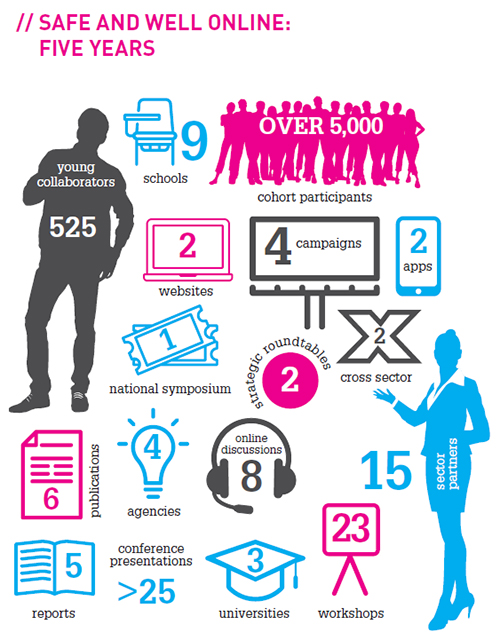Safe and Well Online
Dr Philippa Collin and Dr Teresa Swist
(working in partnership with University of South Australia, Queensland University of Technology and Zuni)
The Safe and Well Online project is a five-year project supporting safe and healthy online behaviour for young people. The project has developed four social marketing campaigns to promote respect and civil discourse online, while also empowering young people to spread positivity in their digital interactions, and increasing the value that young people and their communities place on safety and wellbeing.
Established in 2011, the project has grown to a network of over 25 partners incorporating government agencies and departments, advocacy groups, non-governmental organisations, technology and service providers, schools and small and medium enterprises. Western Sydney University has led the stakeholder research and engagement component of this project.
Over 525 young people helped research and design a variety of social campaigns to promote the safety and wellbeing of youth online, a key concern in the digital age. The project has focused on issues relating to respect, body image and help-seeking while future applications of the participatory design framework can be applied to other issues. Interest has already been shown from researchers working in the area of youth obesity, who are interested in applying the framework.
Four unique resources for 12-18 year olds have been produced as part of The Safe and Well Online project.
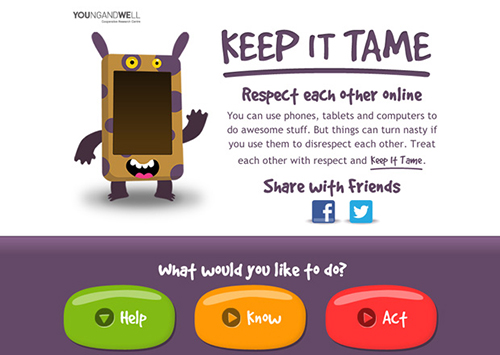
Keep it Tame is an interactive, online video drawing attention to the consequences of thoughtless and hurtful use of social media and empowering young people to act with respect online. The campaign guides teenagers through a series of mock social media posts. As things turn nasty, an animated creature slowly becomes more grotesque, highlighting the hurtful effects of the online exchanges and ultimately encouraging people to act with respect. 'Many people unfortunately experience hurtful behaviour online at some stage, and it's crucial that this generation of Australians doesn't grow up thinking this is the natural way to communicate online, because it isn't,' says Dr Philippa Collin.
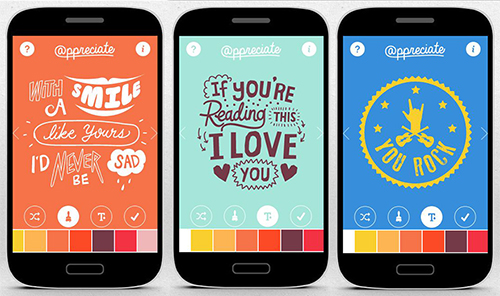
The Appreciate-A-Mate app is designed to promote self-esteem and social connectedness through the creation and sharing of inspirational messages. The app, developed in collaboration with 163 young people aged 12-18, helps young people create positive messages in the form of images and text written and designed by the participants. With nearly 50,000 images distributed since 2013, the campaign has successfully spread positivity about body image, and countered negative behaviours such as cyber bullying. Appreciate-A-Mate is now a recommended resource of leading Australian services including Reachout Professionals, Butterfly Foundation, Wellbeing Australia and Medicare Local. It has also been adapted by Facebook and youth-led anti-bullying initiative Project Rockit for the 2014 National Day of Action Against Bullying.
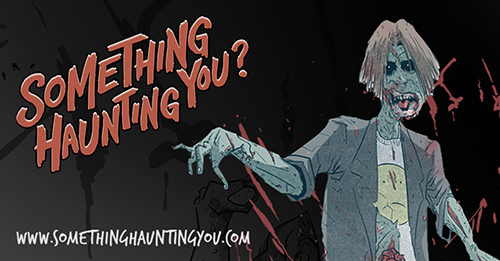
Something Haunting You? is an online mental health resource targeted towards young men aged 15-17 years, giving them the tools to deal with everyday stress. This survival guide goes through a list of common stressors and provides practical tips on how to overcome them. In response to feedback from young men that the use of humour and interesting abstract concepts is important, the campaign uses zombies to represent the very real problems that they face such as such as exam stress, peer pressure, and body image doubts, so that they can take action.
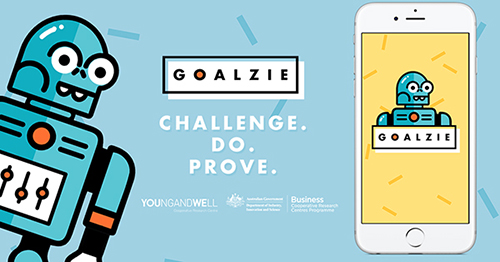
Goalzie incentivises young people to explore short-term goals via peer-to-peer challenging, support and access to online resources. The mobile game app challenges young people to make positive changes in their lives such as embarking on new exercise or diet programs, or unleashing their creativity by making videos for their friends. Just like truth or dare, users of the app are able to set fun consequences for any unachieved goals, for example washing the family car, making One Direction their Facebook cover photo or handing in homework two days early.
'Working with young people at all stages of research and design helped identify that promoting help-seeking can start before a young person has a "problem", and helped us understand how their social and digital practices could provide the basis for everyday goal-setting and help seeking,' Dr Collin explains.
Young people were consulted throughout the project, acting as peer researchers, co-creators and advocates for campaigns that reflect their views and aspirations. A partnership with the Young and Well Cooperative Research Centre, University of South Australia, Queensland University of Technology and digital strategy agency Zuni, the project is unique in engaging young people as both peer researchers and co-creators of digital content.
The Safe and Well Online project, as well as the campaign assets and resources, have been profiled in international and cross-sector symposiums and networks in the USA, Europe and India. The project and its outputs have also been publicised through professional health, marketing and advertising networks, and have received widespread media coverage.
